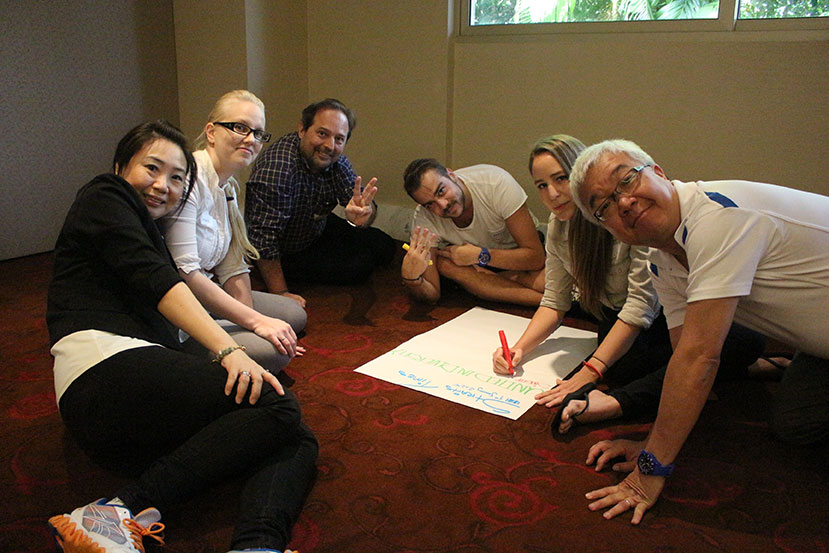
Developing a successful team environment has the benefit of improving the organisation’s qualities and processes. And, this has the added benefits of leading to cost reduction and improved customer satisfaction.
In the formation of a team, the organisation should carefully consider several factors. This includes design plans, group processes, placement, member participation and overall team purpose.
The below five principles help the senior management to achieve the most effective performance and long-term goals.
Let’s look at an overview of the five rules of leadership development for team managers:
1. Purpose
Any team that hopes to achieve success needs to understand its objectives fully and why it exists.
The senior management team must put together a clear mission statement. It should outline what it needs to do so that everyone works closely together to achieve this shared goal.
The team goals should be clearly stated to help guide the performance and meet future challenges.
2. Plan
A complete plan strategy should include brainstorming options and the delivery method of the end product.
Plus, it is also essential to put in place expected milestones or a timeline for future goals.
By pre-planning the schedules and goals, it is easier to work with a target and complete the work in a timely fashion.
3. Participation
Before starting a project, senior management needs to identify the size and place the best team members.
Issues to consider are how large the team should be to achieve its purpose and the type of people to be involved in this project.
In the process of identifying the right team members, it is important to consider the professional attitude, skill set, character and ability to work in a group environment.
The most successful teams usually have a combination of personality types to provide the diversity and dynamics to complete the work.
4. Placement
The physical location of the project and meetings can have a significant impact on the lives of the workgroup.
The work can make things a lot more straightforward, but it is still essential to have a suitable place to conduct regular meetings, especially for those working on the more complex projects.
A negative aspect of splitting the team across multiple sites is the increased day-to-day costs, while there may also be differences in relation to time zones and culture.
For the team members over a large geographical area, the use of communication tools can be a practical solution to avoid the regular need for travel.
5. Process
The process relates to how the management and team are going to accomplish the intended goal.
It is essential to put in place ground rules or restrictions that relate to foundation boundaries and decision-making authority.
In the early stages of the project, it can help to include team training that relates to problem-solving, interpersonal communication, record keeping formats and meeting agendas.
Should you need assistance or would like to find out more about our services, please send an email to Contact@Experiential-Training.com, and our trainer will contact you.
